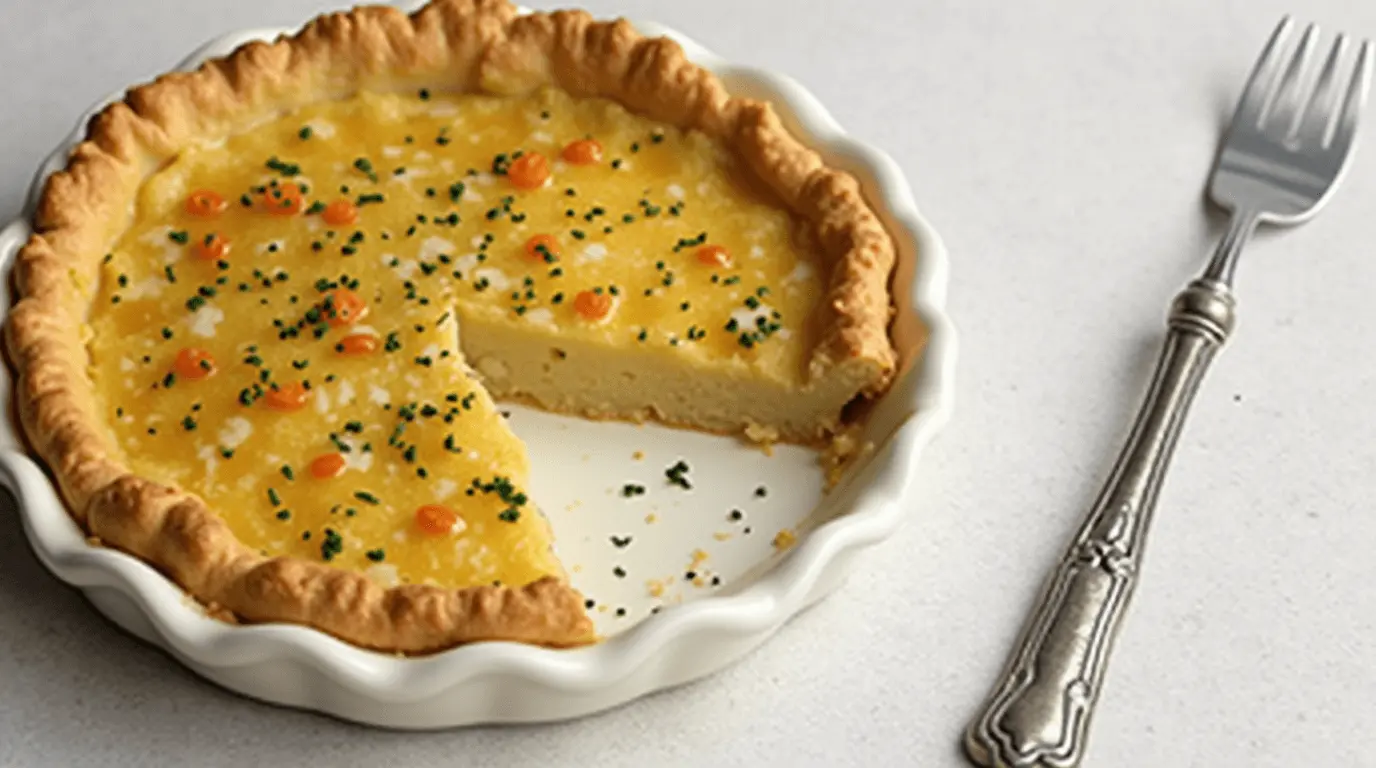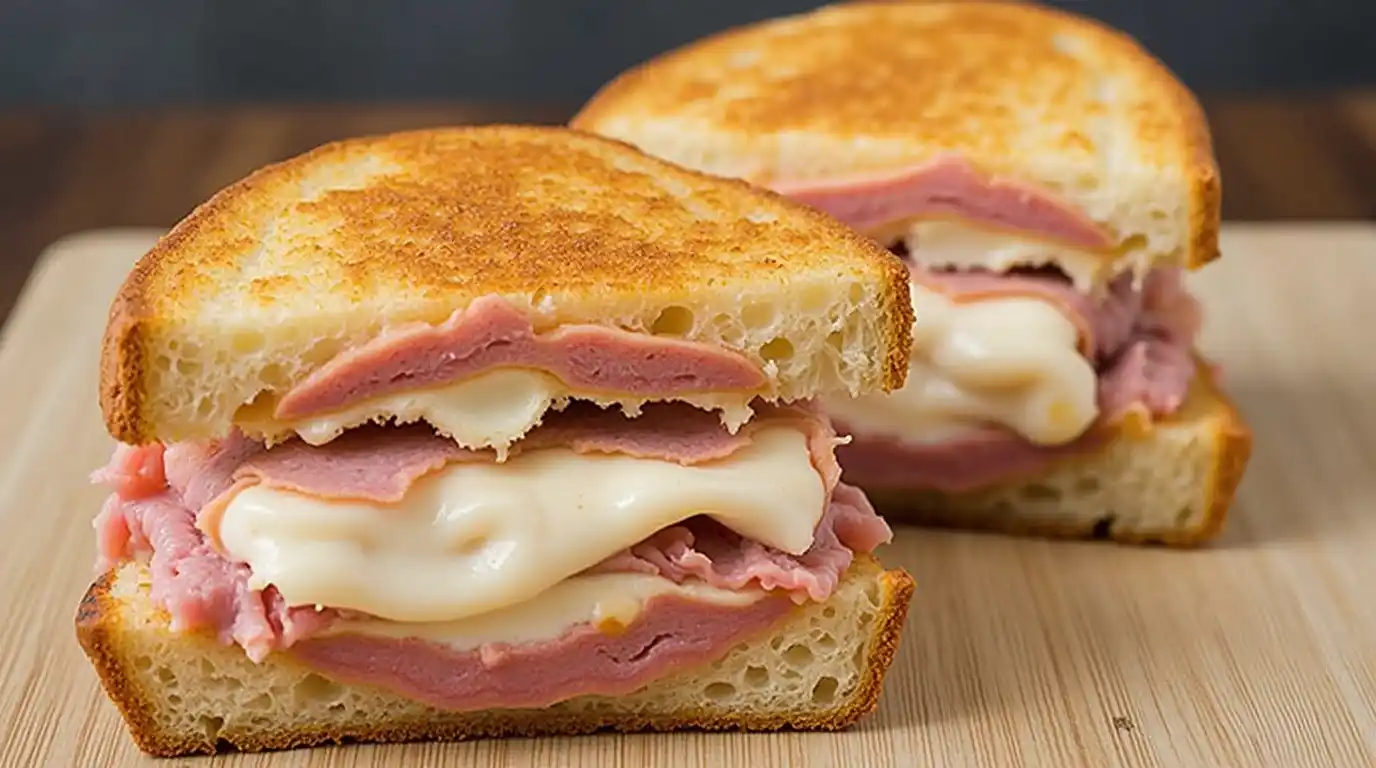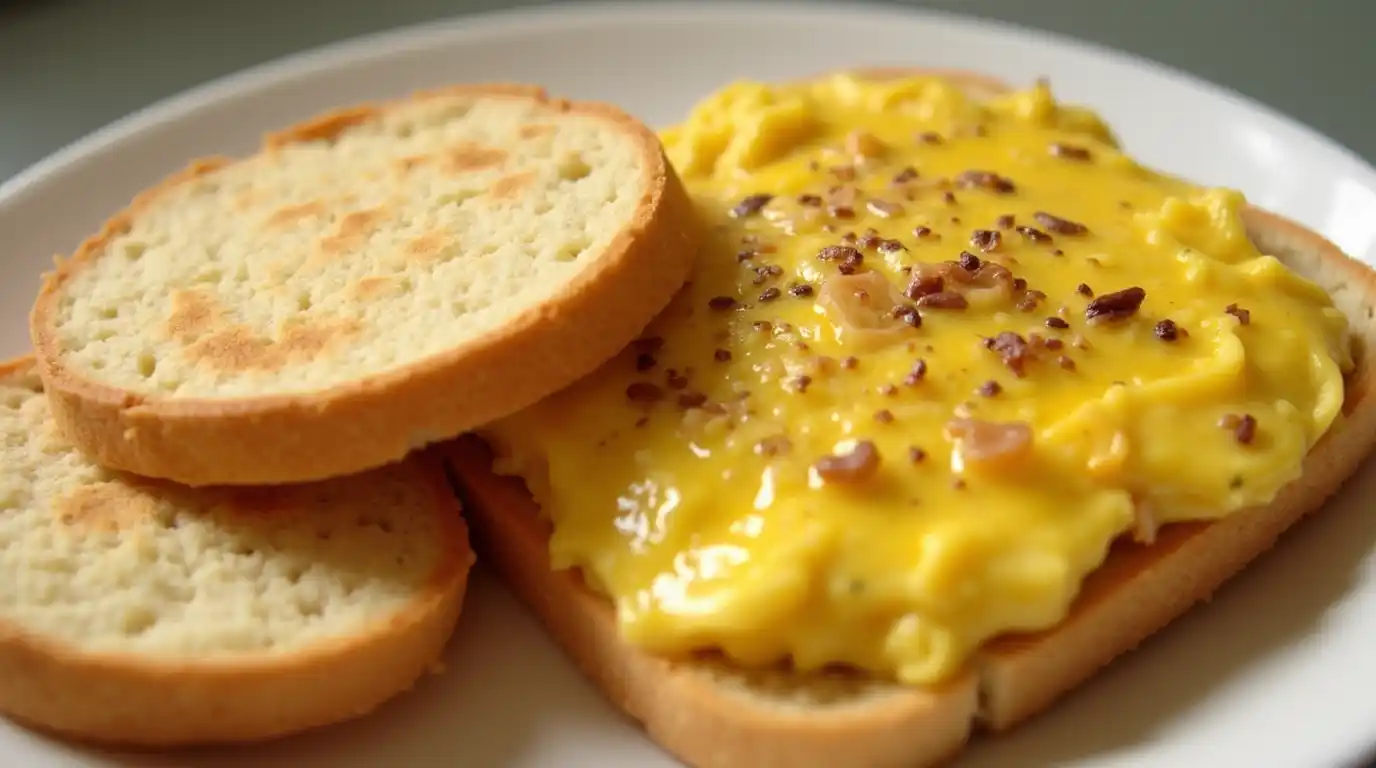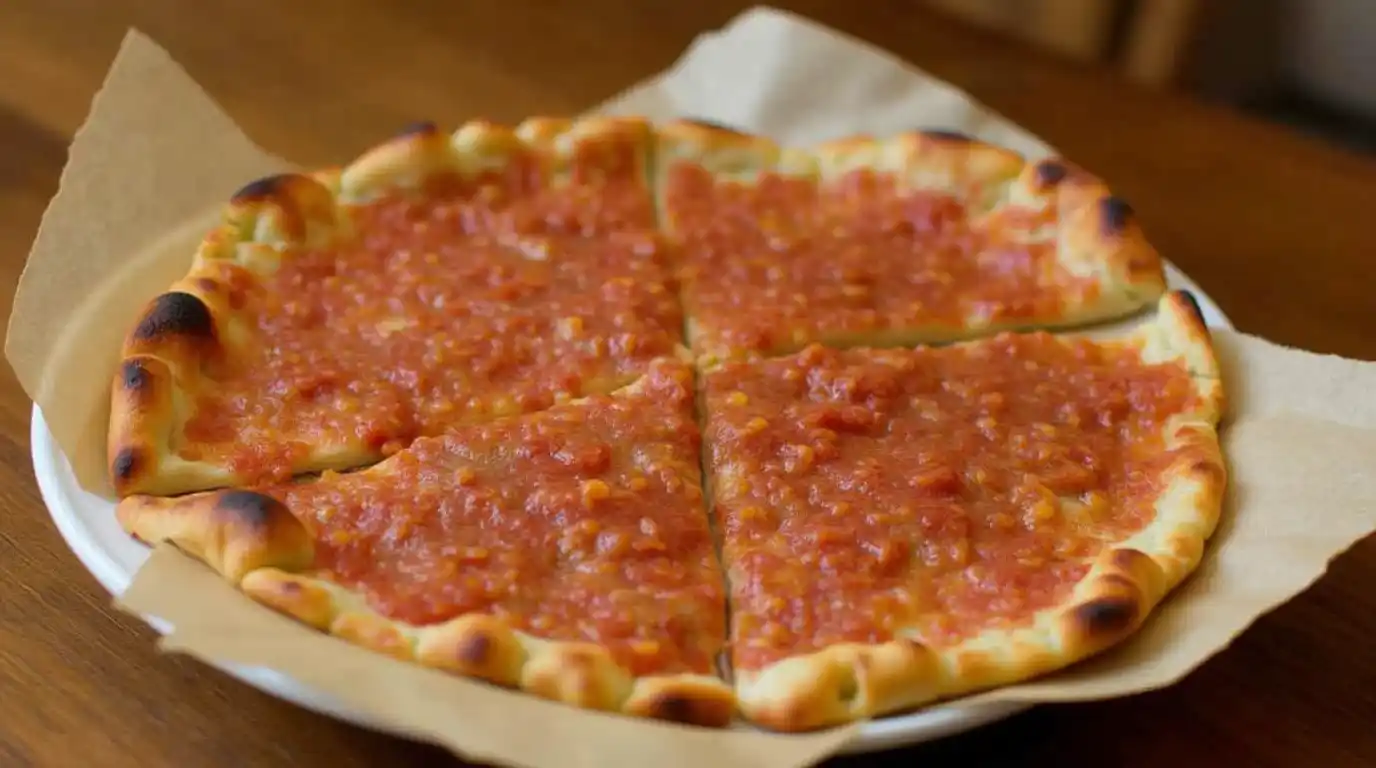Table of contents
Looking for the perfect Passover Potato Pie recipe? This dish is a delightful blend of creamy mashed potatoes and crispy edges, making it a must-have for your holiday table. It’s not just a meal; it embodies the spirit of celebration and tradition.
In this recipe, you’ll use starchy potatoes like Russet or Yukon Gold, ensuring a rich texture. The addition of olive oil enhances flavor and moisture. Whether you’re familiar with this classic or trying it out for the first time, this pie is sure to impress.
Let’s get started on this simple yet satisfying potato pie recipe that everyone will love!
Ingredients for Passover Potato Pie
The components needed for a delicious Passover Potato Pie include key staples. Begin with starchy potatoes like Russet or Yukon Gold. Incorporate olive oil for moisture and richness. Matzo meal serves as a flour substitute, keeping it kosher for Passover. A finely chopped onion adds depth, while minced garlic enhances the flavor. Season with salt and pepper to your liking. For garnish, opt for chopped parsley and paprika to elevate presentation.
| Ingredient | Amount | Purpose |
|---|---|---|
| Potatoes | 2 pounds | Main filling |
| Olive Oil | 1/2 cup | Moisture and flavor |
| Matzo Meal | 1/2 cup | Flour substitute |
| Onion | 1 medium | Sweetness and depth |
| Garlic | 2 cloves | Aromatic quality |
- Potatoes: Starchy varieties preferred.
- Olive Oil: Adds richness.
- Matzo Meal: Essential for texture.
- Onion: Enhances flavor depth.
- Garlic: Optional for extra aroma.
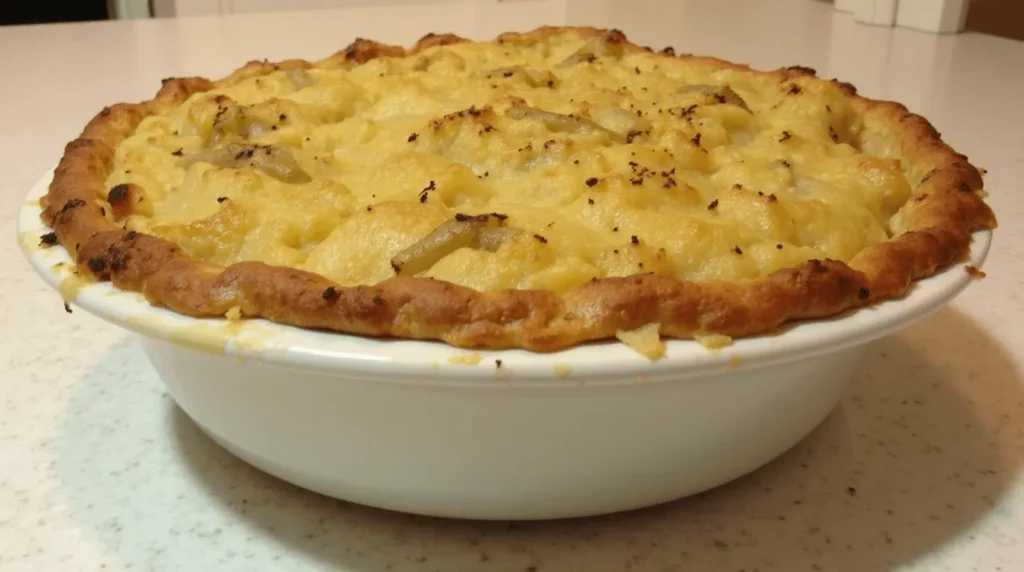
Step-by-step Preparation Guide
For a successful passover potato pie, follow this detailed preparation process:
- Peel and chop your starchy potatoes. Boil them for about 15-20 minutes, or until fork-tender.
- Drain and let them cool. Mash the potatoes until smooth.
- Combine the mashed potatoes with eggs, olive oil, matzo meal, finely chopped onion, minced garlic, salt, and pepper. Mix thoroughly.
- Grease a 9-inch pie dish with olive oil. Pour in the potato mixture, smoothing the top.
- Sprinkle paprika on top and drizzle more olive oil.
- Preheat the oven to 375°F (190°C) and bake for 50-60 minutes until golden brown.
- Let cool before slicing. Enjoy your delicious potato pie!
Preparing the Potato Filling
Chopping and boiling the potatoes is the first step in crafting the perfect filling for your Passover potato pie. Aim for fork-tender pieces after about 15-20 minutes in boiling water. Once drained, mash the potatoes until smooth.
Combine the mash with eggs, matzo meal, chopped onion, minced garlic, and season with salt and pepper. Mix until well blended. This flavorful filling will serve as the heart of your dish, creating a delicious contrast with the crispy exterior.
- Peel and chop potatoes.
- Boil until fork-tender.
- Drain and mash.
- Mix in eggs and seasonings.
- Fill your pie dish.
Adding Flavor with Olive Oil
Infusing your dish with olive oil adds depth and richness. A generous 1/2 cup not just moistens the filling but also brings out the natural flavors of the ingredients. For those preparing a passover potato pie, drizzle some extra oil on top before baking. This technique helps achieve a golden, crispy texture, making each bite delightful. Consider using high-quality olive oil for a more intense flavor. Experimenting with infused oils can elevate your dish, providing a unique twist that complements your passover potato kugel or even a savory pot pie recipe.
Baking Tips for Perfect Texture
Achieving the right texture for your dish can make all the difference. For a passover potato pie, focus on using starchy potatoes like Russet or Yukon Gold for a creamy filling. Ensure your potatoes are thoroughly drained after boiling to prevent sogginess. Bake at 375°F until the top is golden brown, usually 50-60 minutes. Allow the pie to cool briefly for cleaner slices. Drizzling additional olive oil before baking enhances crispness, giving your pie that perfect crunch everyone loves.
| Tip | Detail | Result |
|---|---|---|
| Use starchy potatoes | Russet or Yukon Gold | Creamy filling |
| Drain well | Prevent sogginess | Flaky texture |
| Bake at 375°F | 50-60 minutes | Golden brown top |
| Cool briefly | Easier slicing | Neat presentation |
| Drizzle oil before baking | Extra crispness | Enhanced flavor |
- Choose starchy potatoes.
- Boil until fork-tender.
- Drain thoroughly.
- Bake at 375°F for 50-60 minutes.
- Allow cooling before slicing.
- Drizzle oil before baking.
- Use fresh seasonings for flavor.
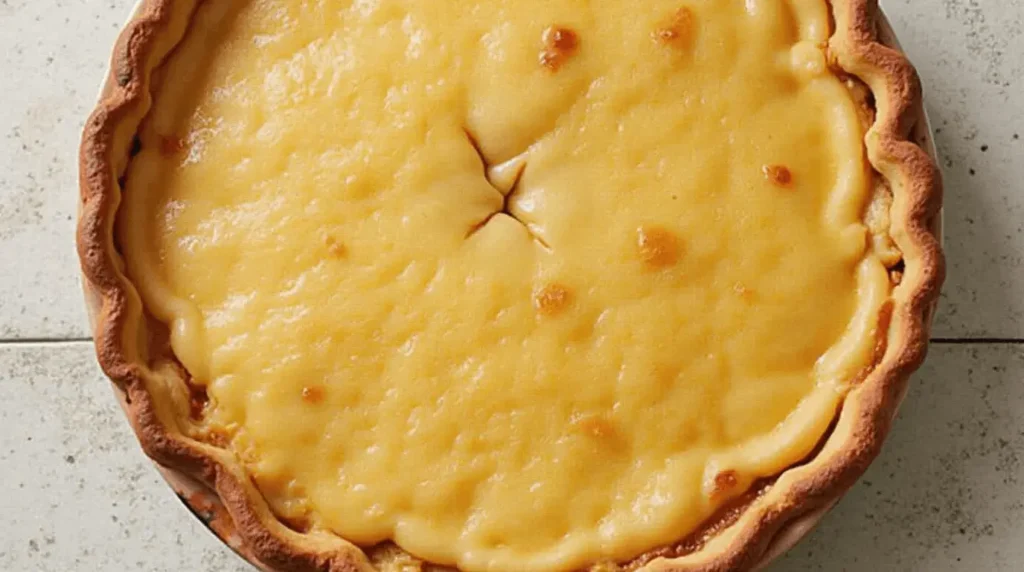
Suggested Seasonings for Extra Flavor
For a boost of flavor in your Passover potato pie, consider these seasonings.
- Dill adds a fresh, herby note.
- Thyme provides an earthy richness.
- Rosemary contributes a pine-like aroma.
- A dash of paprika enhances color and depth.
- Cumin offers a warm, nutty flavor.
- Black pepper gives a slight kick.
- Chives lend a mild onion flavor.
- A sprinkle of nutmeg can add warmth.
Experiment with these to create your perfect pie filling recipe!
Kosher for Passover: Ingredient Selection
Choosing the right ingredients is crucial for a successful Passover potato pie. Start with starchy potatoes, like Russets, for a creamy texture. Use olive oil to add moisture, and opt for matzo meal instead of regular flour to keep the dish kosher. Onions and garlic enhance flavor, while salt and pepper provide seasoning. For a colorful finish, garnish with parsley and paprika. Always ensure your ingredients are certified kosher for Passover, and consider non-dairy alternatives if needed. This attention to detail will elevate your pie to new heights.
| Ingredient | Purpose | Kosher for Passover Options | Notes |
|---|---|---|---|
| Potatoes | Base for filling | Starchy types (Russet, Yukon) | Creamy texture |
| Olive Oil | Moisture and flavor | Extra virgin, light olive oil | For drizzling and greasing |
| Matzo Meal | Flour substitute | Ground matzo | Keeps pie kosher |
| Onion | Flavor enhancer | Yellow or sweet onion | Finely chopped |
| Garlic | Aromatic quality | Fresh minced | Optional |
- Select starchy potatoes for texture.
- Use matzo meal for a Passover-friendly base.
- Choose certified kosher ingredients.
- Consider non-dairy alternatives if necessary.
- Enhance flavors with onions and garlic.
Common Mistakes to Avoid
Avoiding pitfalls can make all the difference in your Passover potato pie. Here are some common missteps:
- Don’t skip draining the potatoes well; excess moisture leads to a soggy pie.
- Overmixing the potato mixture can create a dense texture.
- Forgetting to preheat the oven may result in uneven baking.
- Ignoring the need to cover the pie if it browns too quickly can ruin the look.
- Neglecting to let the pie cool before slicing makes serving messy.
These tips will ensure a delicious, well-prepared dish.
Serving Suggestions for Your Potato Pie
For those looking to enhance their Passover potato pie, consider pairing it with complementary dishes.
- Serve with roasted lamb or brisket for a hearty contrast.
- Add sautéed green beans or roasted asparagus for a fresh crunch.
- A side of tzatziki can add a refreshing zing.
- Pair with a simple salad of mixed greens and vinaigrette.
- Offer a dollop of applesauce for a sweet touch.
- Matzo ball soup makes a delightful starter.
- Serve with pickled vegetables for added flavor.
These suggestions will elevate your meal experience.
Pairing with Protein Dishes
Pairing protein dishes with your Passover potato pie enhances the meal’s flavor profile. Roasted lamb or brisket brings out a rich contrast to the creamy pie. Chicken dishes, especially roasted or grilled, complement the texture perfectly. For a heartier option, consider a beef stew or braised short ribs. If you’re looking for lighter fare, grilled salmon or tofu stir-fry can balance the meal.
Adding sautéed greens or a fresh salad on the side keeps the plate vibrant and satisfying.
Complementary Vegetable Sides
When planning complementary vegetable sides, think of options that bring balance. Roasted asparagus pairs beautifully, offering a slight crunch and earthy flavor. Sautéed green beans can add a vibrant touch and maintain a fresh taste. Consider a zucchini and tomato medley for a colorful presentation. Carrots, glazed or roasted, enhance sweetness and warmth. Finally, a simple cucumber salad can provide a refreshing contrast. These vegetable options not just complement your dish but also create an inviting plate that celebrates flavors during your Passover meal.
Substitution Guide for Ingredients
For ingredient substitutions, consider alternatives that maintain the essence of your Passover potato pie.
Use almond or coconut flour instead of matzo meal for a suitable replacement. For a non-dairy version, almond or coconut milk works well in place of traditional dairy. If you’re short on onions, shallots can provide a similar flavor profile.
Check the table below for more ideas:
| Original Ingredient | Suggested Substitute | Notes |
|---|---|---|
| Matzo Meal | Almond/Coconut Flour | Gluten-free option |
| Olive Oil | Avocado Oil | Similar flavor |
| Potatoes | Sweet Potatoes | Different flavor |
| Onion | Shallots | Similar taste |
| Garlic | Garlic Powder | Easy to use |
- Almond flour for matzo meal.
- Avocado oil instead of olive oil.
- Sweet potatoes instead of regular potatoes.
- Shallots can replace onions.
- Garlic powder as a convenience.
Non-Dairy Alternatives for Cheese
Exploring options for non-dairy cheese can be rewarding. Consider these alternatives to enhance your dishes:
- Nut-based cheeses: Made from cashews or almonds, they provide a creamy texture.
- Soy cheese: Often available in various flavors, suitable for melting.
- Coconut yogurt: Great for a tangy flavor in dips and spreads.
- Nutritional yeast: Adds a cheesy flavor to pasta and popcorn.
- Store-bought vegan cheeses: Many brands offer a range of options for every palate.
These alternatives are perfect for a Passover potato pie, keeping your meals both delicious and accommodating.
Flour Alternatives for Passover
For those looking to substitute flour during Passover, several options shine.
- Matzo meal is a classic choice, ideal for maintaining a traditional flavor.
- Almond flour offers a nutty taste and is gluten-free.
- Coconut flour is another gluten-free option, though it absorbs moisture well.
- Chickpea flour can add a rich, earthy flavor to your dishes.
- Ground oats provide a hearty texture, but ensure they’re certified kosher for Passover.
These alternatives can elevate your Passover potato pie while keeping it kosher-friendly.
Storing and Reheating Leftovers
Proper storage and reheating enhance the experience of your leftover Passover potato pie. Keep uneaten portions in an airtight container in the refrigerator for up to five days. For longer storage, freeze them for up to three months. When ready to enjoy, preheat your oven to 350°F (175°C). Cover the pie with foil to prevent over-browning and heat for about 20-30 minutes. If using a microwave, warm it in short increments, checking frequently. Enjoy your delicious leftovers with renewed flavor!
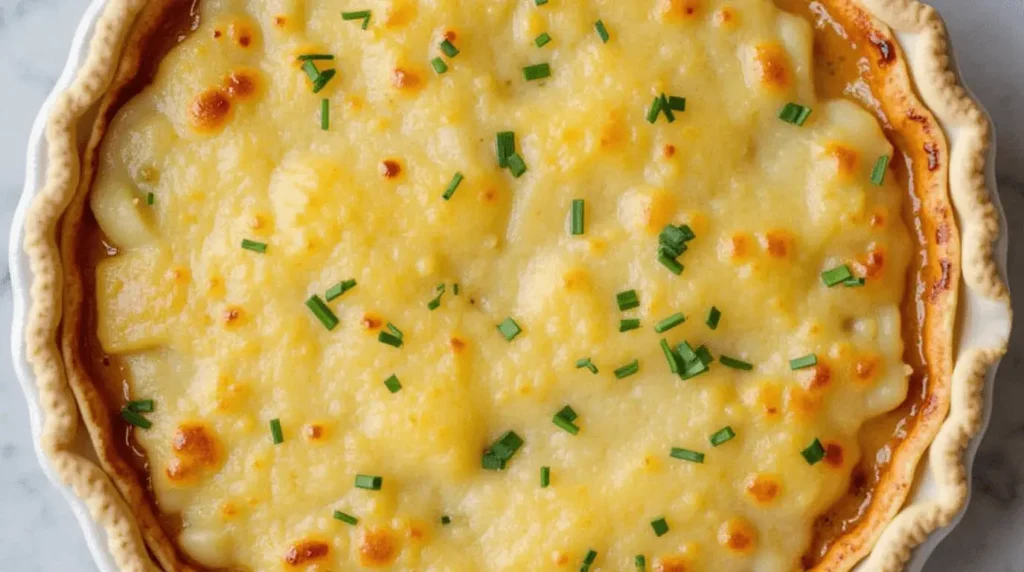
Nutritional Information and Benefits
The details regarding the nutritional value and advantages of Passover potato pie are noteworthy. This dish is rich in potatoes, which are a great source of carbohydrates, providing energy. The use of olive oil contributes healthy fats, supporting heart wellness. Matzo meal adds a unique texture while being gluten-free. Each slice packs vitamins and minerals from the onion and garlic, boosting flavor and nutrition. It’s a versatile option that can be paired with protein-rich foods, enhancing meal satisfaction.
| Nutritional Component | Amount per Serving | Health Benefit |
|---|---|---|
| Calories | 180 | Energy source |
| Protein | 4g | Muscle support |
| Dietary Fiber | 2g | Digestive aid |
| Carbohydrates | 30g | Energy boost |
| Healthy Fats | 7g | Heart protection |
- Boosts energy levels.
- Supports heart wellness.
- Provides essential vitamins.
- Gluten-free option.
- Pairs well with proteins.
- Satisfying and versatile.
- Easy to prepare.
- Great for gatherings.
Frequently Asked Questions Answered
Addressing common queries regarding Passover potato pie, many wonder about ideal ingredient substitutions. For a non-dairy version, almond or coconut milk works well. When choosing potatoes, starchy varieties like Russet ensure a creamy texture.
People often ask how to avoid sogginess. Properly draining the potatoes is key. For those interested in enhancing flavors, adding herbs such as dill or thyme can elevate the dish. Finally, if you have leftovers, store them in an airtight container and reheat in the oven for the best results.
Share Your Own Variations and Feedback
Sharing your unique twists and critiques can enhance the Passover potato pie experience. Consider these ideas for your variations:
- Experiment with different herbs like thyme or rosemary.
- Add sautéed mushrooms or spinach for extra flavor.
- Try substituting sweet potatoes for a sweeter profile.
- Incorporate spices like paprika or cumin for a kick.
- Use a blend of matzo meal and almond flour for texture.
- Top with caramelized onions for added sweetness.
- Consider a cheese layer for a richer taste.
- Share your personal stories or memories related to the dish.
Your feedback can inspire others!
Explore More Passover Recipes
Looking for more delicious ideas for Passover? Here are a few recipes to complement your Passover potato pie.
- Classic Passover Potato Kugel: A traditional favorite that’s crispy on the outside.
- Savory Chicken Pot Pie: A comforting dish, perfect for family gatherings.
- Chocolate Pie Recipe: Indulge your sweet side with this rich dessert.
- Hand Pies Recipe: Easy to make and great for snacks.
- Potato Kugel Recipe: Another twist on potatoes that everyone loves.
These recipes can add variety and flavor to your Passover table. Enjoy!
Classic Passover Potato Kugel Recipe
A traditional Passover potato pie brings comfort and satisfaction to the table. For a classic preparation, remember to use starchy potatoes and matzo meal for the right texture. Here’s how to make it:
- Peel and boil potatoes until fork-tender.
- Mash and mix in olive oil, matzo meal, and seasonings.
- Grease a dish and pour in the mixture.
- Bake at 375°F for about an hour until golden.
- Cool before slicing for best results.
Serve alongside roasted lamb or asparagus for a complete meal.
Conclusion
The Passover Potato Pie is more than just a dish; it’s a celebration of flavor and heritage. This recipe is perfect for family gatherings or festive meals. Every bite of this warm, savory pie captures the essence of Passover traditions while allowing creativity in the kitchen.
Don’t be afraid to experiment with different seasonings or side dishes. Pair it with roasted lamb or vibrant green vegetables for a balanced meal. As you gather around the table, share your personal twists on this recipe. Your unique touches could inspire others to try something new. Enjoy your cooking journey and the delicious results!
FAQ
Can Jews eat potatoes during Passover?
Yes, Jews can eat potatoes during Passover. Potatoes are considered kosher for Passover and are commonly used in various dishes, such as potato kugel, latkes, and more.
What is a substitute for matzo meal in potato kugel?
If you don’t have matzo meal, you can use potato starch, almond flour, or ground nuts (like almonds or walnuts) as a substitute in potato kugel. These alternatives help bind the ingredients together.
What is the history of the Maakouda?
Maakouda is a North African Jewish dish, particularly popular in Morocco and Algeria. It consists of fried potato patties or fritters, often seasoned with herbs and spices. It has roots in Sephardic Jewish cuisine and is commonly eaten during Passover and other times of the year.
Are potato pancakes kosher for Passover?
Yes, potato pancakes (like latkes) can be kosher for Passover as long as they are made with Passover-approved ingredients (e.g., potato starch instead of flour) and prepared in accordance with Passover dietary laws.
What are the 5 forbidden foods on Passover?
The five forbidden grains (known as chametz) on Passover are wheat, barley, rye, oats, and spelt. These grains can ferment and rise, which is prohibited during Passover unless they are specially prepared as matzo.
Why is oatmeal not kosher for Passover?
Oatmeal is not kosher for Passover because oats are one of the five forbidden grains (chametz). Unless certified as kosher for Passover (like oat matzo), oats are avoided during the holiday.
What can I use if I don’t have matzo meal?
If you don’t have matzo meal, you can use alternatives like potato starch, almond flour, coconut flour, or ground nuts (e.g., almonds or walnuts) in recipes.
- How do you keep potato kugel from turning brown?
To prevent potato kugel from turning brown, you can:- Add a bit of lemon juice to the grated potatoes to slow oxidation.
- Cover the kugel tightly with foil while baking to reduce exposure to air.
- Bake it shortly after preparing the mixture to minimize browning.
Is kugel okay for Passover?
Yes, kugel is okay for Passover as long as it is made with Passover-approved ingredients. For example, potato kugel or matzo-based kugels are common during the holiday. Avoid using chametz (forbidden grains) or non-Passover-certified products.
Can Jews eat potatoes during Passover?
- Yes, Jews may eat potatoes during Passover. Potatoes are kosher for Passover because they’re not one of the five forbidden grains (wheat, barley, rye, oats and spelt) and they don’t ferment or rise. Potatoes are used in many types of Passover foods, including potato kugel, latkes and mashed potatoes, and are widely used in Ashkenazi, Sephardic and other Jewish culture cuisine for the holiday. Of course, any potato dish to be served for Passover must be prepared with only Passover-acceptable ingredients and utensils to avoid the crossover with chametz (foods leavened with yeast, etc.).

